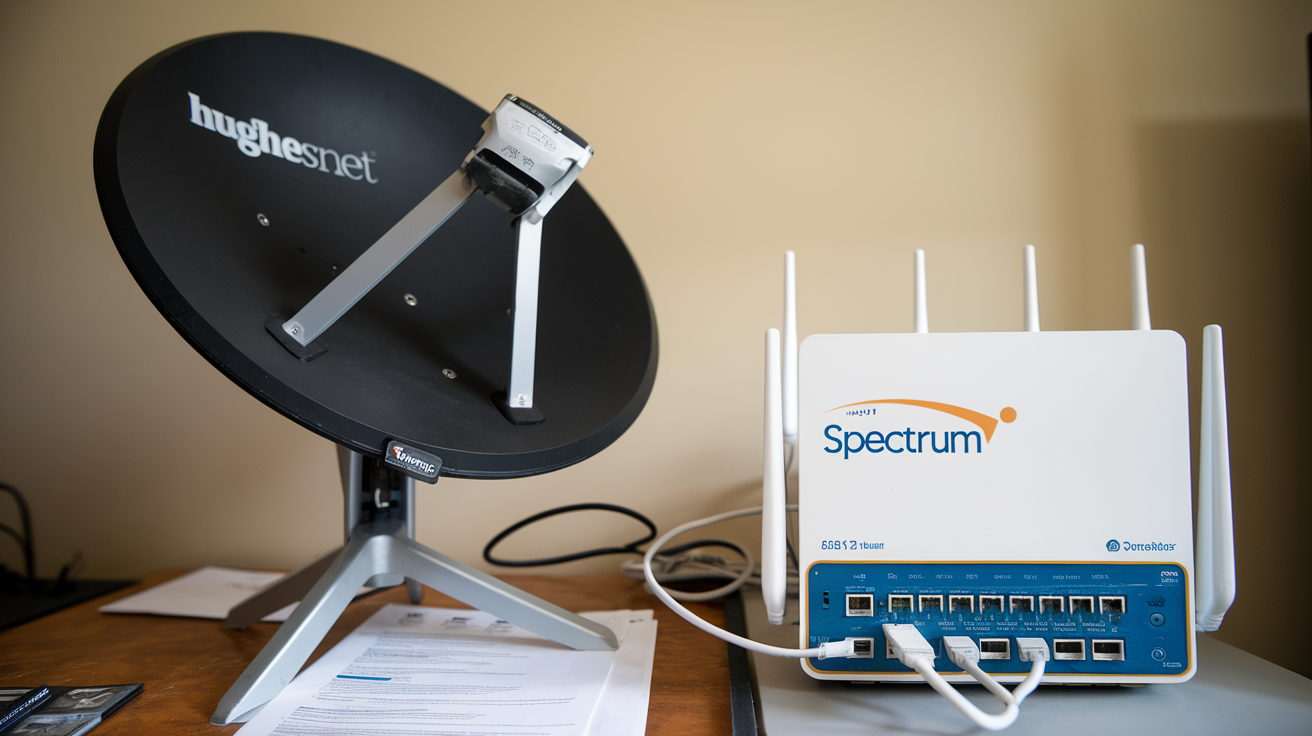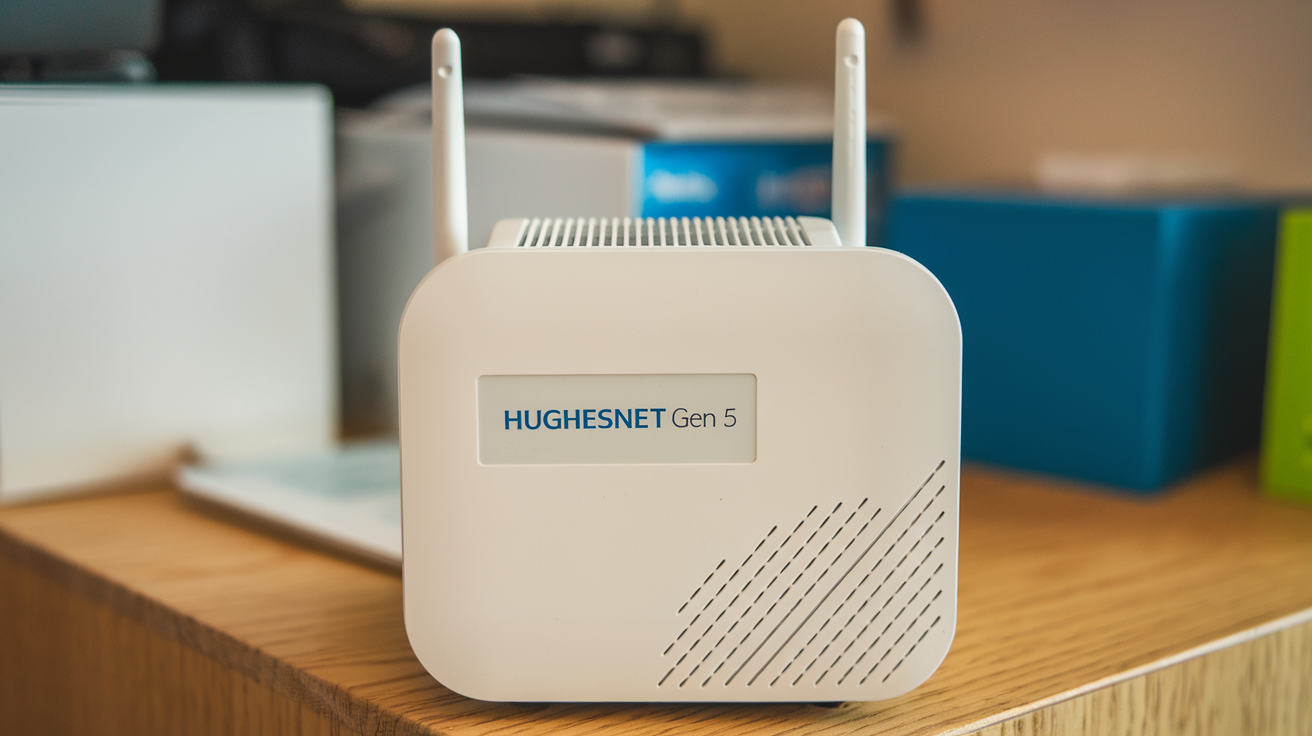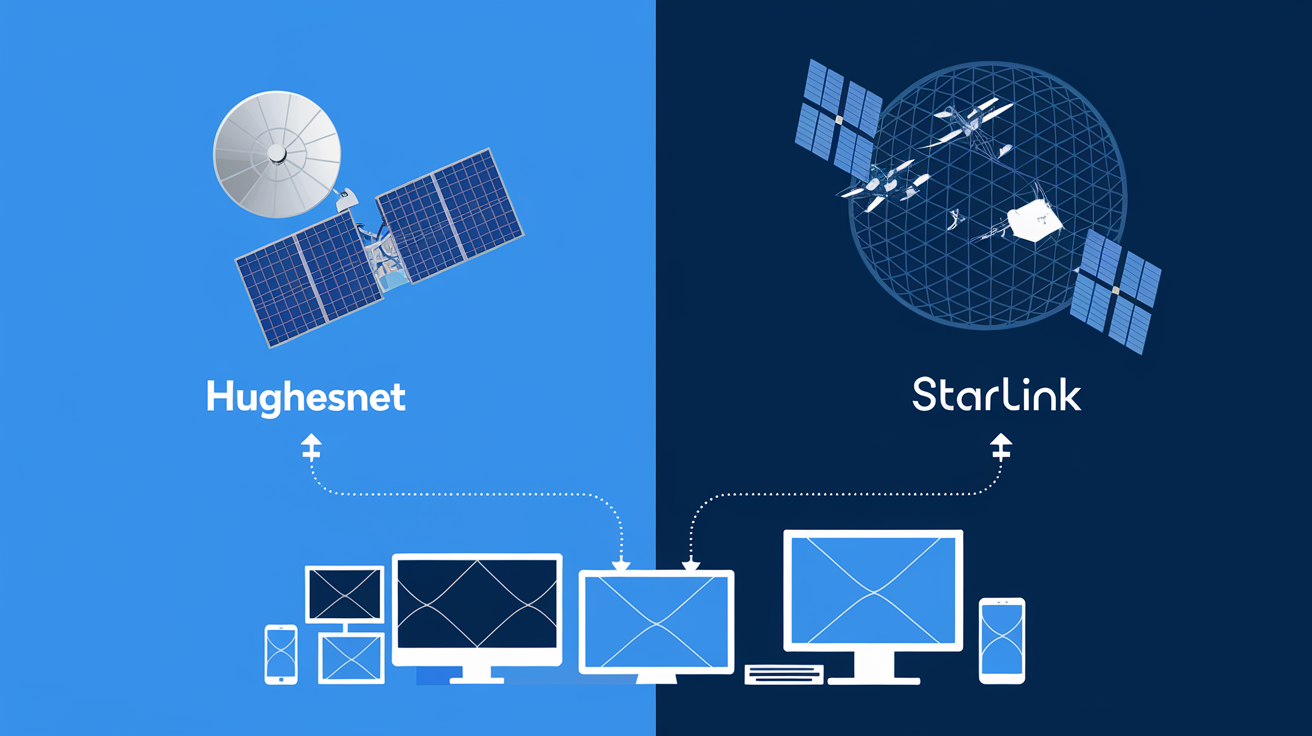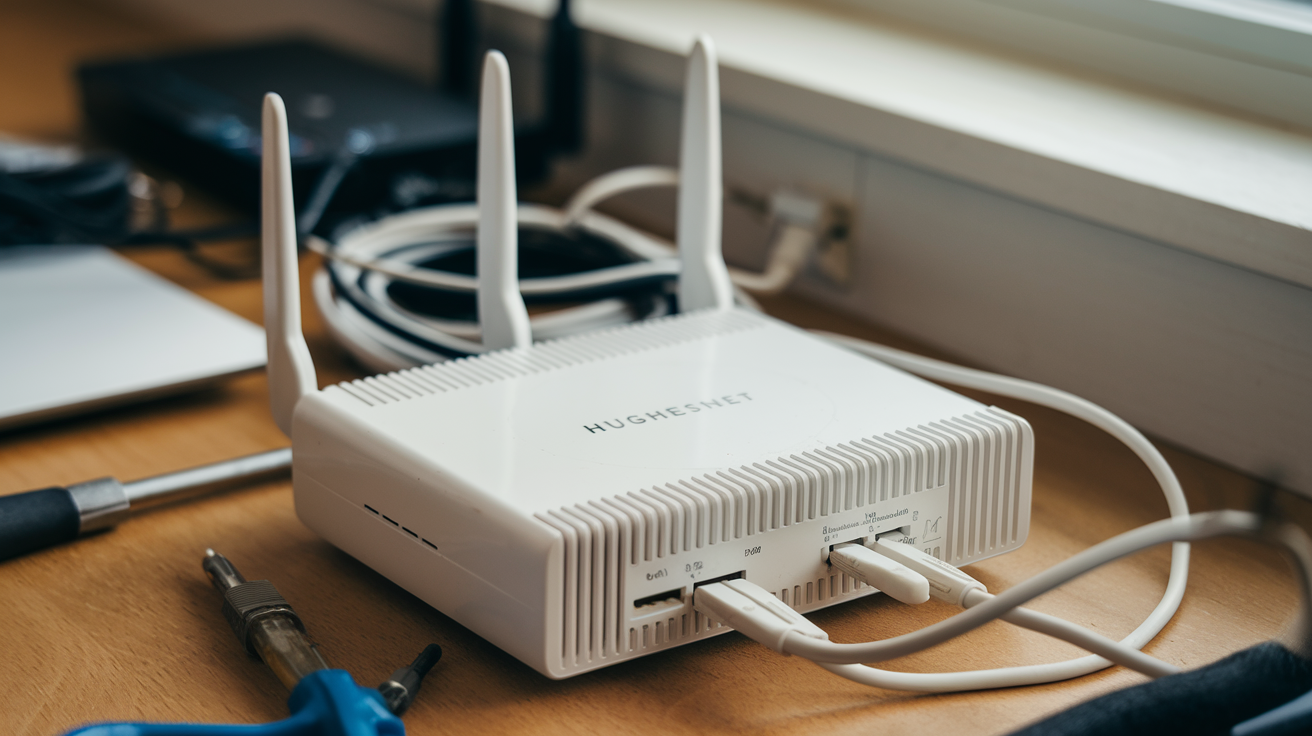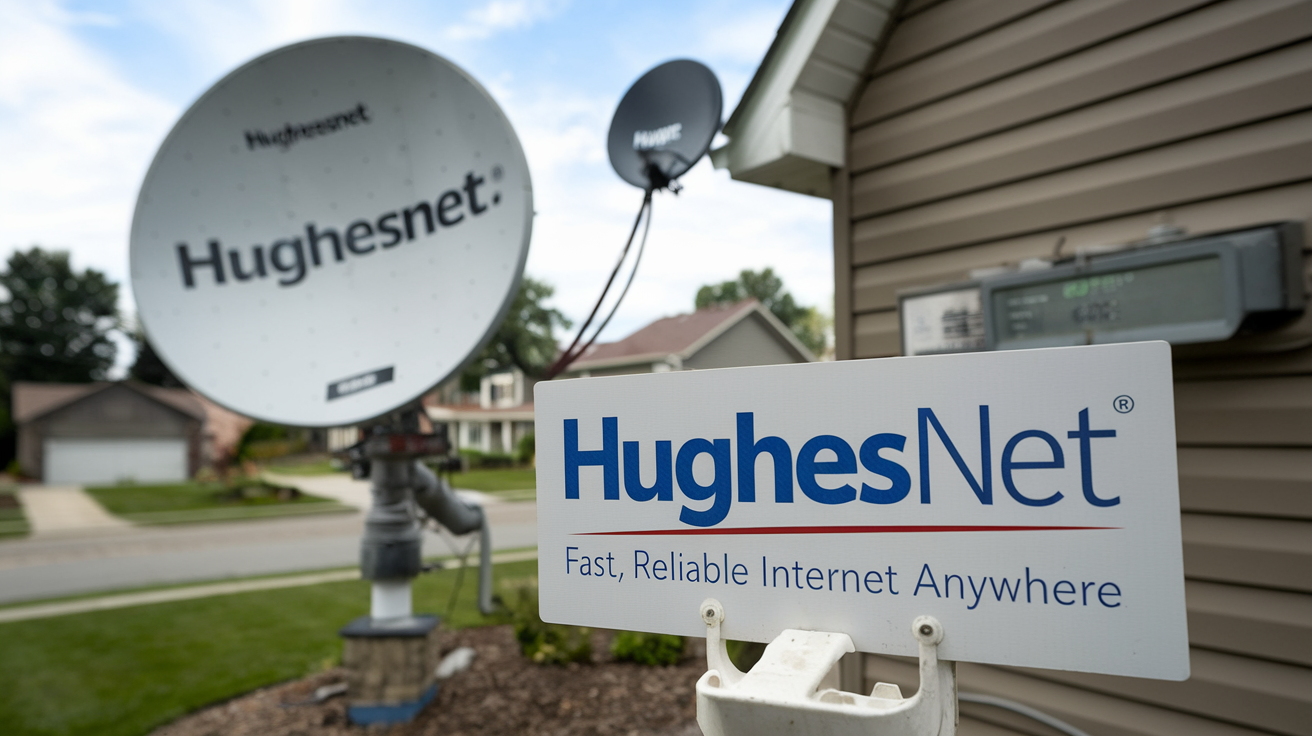-
Posted on: 08 Aug 2024

-
HughesNet is another major satellite internet service provider, especially for those living in rural areas where coaxial and fiber connections are not available. This article will answer that question for you as a potential customer anxious to know whether HughesNet is a good choice for satellite internet in 2024. Is either they provide these in the past adequate or are there better options now? Now, as we move towards 2024, let us consider what satellite internet from HughesNet currently provides or lacks and its suitability or otherwise to its subscribers.
Speeds and Data Caps
While the company does not boast of the fastest internet connection, the top-tier plans provide download speeds of 25Mbps. Compared to 2024 standards for cable or fiber internet that can provide 100Mbps or even higher, 25Mbps can be still considered slow, however, it was much faster compared to old satellite internet speeds. 25Mbps can still allow users to browse and watch SD videos without interruption; however, watching HD videos or making video calls will often result in buffering and delays.
However, HughesNet plans are accompanied by highly limiting data allowances or virtual data caps. While the first three tiers offer unlimited minutes and texts, data is capped at 50GB per month, after which your speeds drop between 1-3Mbps. This makes it very difficult for the user to access large files such as videos or even download very large files. Well, you will have to budget how much you use each month to make sure that it does not surpass the amount you are paying for.
All in all, HughesNet’s slow connection speed and low data allowance make the service suboptimal for consumers who require more than just a minimal, or light, internet connection in 2024. Satellite internet services that are faster and still uncapped may soon be available for most households who require it.
Latency and Jitter Issues
This is because satellite internet by design has higher latencies and jitter compared to wired ground-based internet as the signals take longer distances to and from orbiting satellites. It frequently leads to considerable problems concerning real-time communication and data transfer, including online gaming, video conferencing, voice calls, and web browsing.
Although new satellite constellations are planning to decrease latency even further, the current and future versions of HughesNet are probably still going to be rather high, with latency starting at 600ms or even higher, which translates into lagging performance. Real-time applications could be frustrating or unusable, which is a reality that emerged in different sectors during the last decade.
If you perform many activities that require low latency such as video calling, gaming or even quickly switching from page to page on the internet then you may not get an ideal experience with HughesNet due to the inherent latency issues with satellite Internet.
Reliability Concerns
Anything that exists in the path of the signals such as storms, a lot of trees, or even large vehicles parking between your satellite dish and the southern sky is capable of interrupting your HughesNet signal. Typically, interruptions are minor and can be of brief duration only. However, the performance can be less reliable against wired or cellular connections more specifically.
HughesNet’s newest Gen5 satellite may offer better coverage and less downtime, and the customer service agent confirmed that HughesNet has upgraded its satellite technology. However, even a few minutes of interruption, let it be 5-10 within a day, could be critical for some applications like video conference, streaming, gaming, or VPN connection.
Anything that needs a steady uninterrupted connection reliably in HughesNet is still a gamble as of 2024 over faster, more dependable wired or wireless solutions.
Cost and Data Value
HughesNet plans are $60-$150 monthly in price – relatively high considering such data-limited and slow internet. Not to mention that it’s extremely easy to go beyond the limit of data usage and pay a pretty penny for it. We could thus observe that 50GB of data for $100 a month offers a very low-value ratio compared to what the year 2024 can offer.
The bulk of households struggle to remain below these small data caps every month with usual high-demand activities such as streaming or video calling. They are usually charged extra fees for the extra services that make the cost of the whole process go higher.
As mentioned above, with 100Mbps cable/fiber internet being as affordable as $50-70 per month, the idea of paying more for slower and more restrictive internet, which is the concept behind HughesNet, seems irrelevant in 2024.
Advanced Features
It is, however, imperative to make a note that HughesNet routers are pre-loaded with a WiFi feature. Other extra features include encryptions and blocking to allow safe usage of the Internet, usage and speed of data within the network, and compatibility with Internet of Things devices.
However, the slow speeds, data limitations, and delays are not friendly to several smart devices and advanced connectivities. Specifically, understanding port forwarding/VPNs that are employed by companies, gamers, and cord-cutters for media streaming has been difficult.
Overall, HughesNet may be lacking in features and compatibility to the extent that you will not be happy unless your needs are somehow rudimentary. They would let there be more Smart homes and connected devices if faster less restrictive alternatives were available.
Considering the above-discussed points, it is concluded that HughesNet is not a good choice in 2024.
For those rural consumers that have no other Internet options period, HughesNet might just be their best shot at having home Internet at all. But for the remaining section of prospects that have other wired or wireless options such as cable, fiber optic, and 5G among others, HughesNet in 2024 offers a very doubtful value proposition.
In truth, uncapped internet speeds are faster today and can be quite cheap, and it is quite normal for households to have them to enable the aforementioned activities. As for 25Mbps and 50GB, it sounds incredibly slow and very much overpriced compared to all modern programs and services. He asks why HughesNet may have been reasonable 5-10 years ago when there were limited choices available. However, for 2024, superior options available in the market make HughesNet satellite internet slow and unusable for any activity that is moderately or highly demanding in terms of bandwidth.
Don’t use HughesNet unless your only other available Internet option is dial-up and you don’t use home Internet often. Quite frankly, the consumer will most probably end up paying them even more than what the data cap has provided for owing to what can be described as outrageous overages. But the erratic low ping high ping ping high ping low ping speeds will drive you crazy. Now, high-speed uncapped internet is a necessity for the average household in 2024; it is what is required for a family. However, even up to this point, HughesNet is still found to have some shortcomings in its offering as opposed to other easily accessible options.
